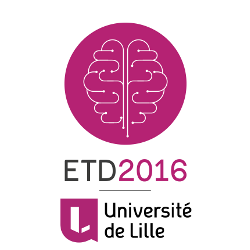Similar to the idea of a digital library, in the recent time, a new concept has emerged called an ontology library. Principally both a digital library and an ontology library have the similar kinds of purposes and objectives to achieve (e.g., store, organize and provide access to the digital objects), except the kind of materials they deal with. While a digital library deals with the documents of various types, such as text, audio, video, images, etc., an ontology library deals with the ontologies (where an ontology is an intelligent object, often referred as a digital artifact, consisted of representations of the entities in terms of their types, properties and the relationships of a domain of discourse).
An ontology library is a kind of organizational network that is easily accessible from any place or location and offers relevant or admissible ontologies in a well-organized manner and with a competent approach, which is based on different well-established ontology representation languages, such as RDFS, OWL, etc. The goal of an ontology library is of two-fold: (i) to provide a platform to the ontologists (a practitioner who builds the ontologies) to publish, store, preserve, share and evaluate the ontologies; (ii) to facilitate the ontofiers (an ontology user) to retrieve the right ontology at the right time to make the best (re)use of it.
Besides the term ontology library, we often come across with some other related terminologies, such as ontology repository, ontology registry, and ontology directory. Conceptually they are similar kind of things but still they have some differences. An ontology repository is a collection of the ontologies and their metadata. An ontology registry consists of a list of ontologies and metadata instead of the actual ontologies. It is an architecture that allows ontology providers and users to use, share and exploit semantic information in a real world scenario. An ontology registry offers several tools and technologies which enable the users to find out the relevant ontologies as per their need. An ontology directory is a service which provides metadata and sources of information of the ontologies. Besides providing the reference services, it supports the registration services and service requests.
The objective of this paper is to disseminate the result of our survey research designed based on some of the existing ontology libraries and to provide a set of guidelines that the future ontology libraries should possess to support the increasing complexity of ontology search and retrieval. The entire work is carried out as follows: we discuss the various concepts related to an ontology library. We elaborate some of the popular ontology libraries and make a comparative analysis of them from both the theoretical and implementation perspectives. We study their various features including the underlying designing principles, ontology exploitation facility, metadata, tools, etc. Based on this analysis, we finally propose the essential features and principles that an ontology library must follow. We envision that from the current work the various agencies namely, the ontology researchers, practitioners and ontology library developers will be highly benefitted.
On the authors:
Debashis Naskar was born in West Bengal, India. He has obtained Bachelor's degree in Commerce from Goenka College of Commerce and BA (2007) and in Library and Information Science from University of Calcutta, Kolkata (2011). He has also obtained a Master's degree in Library and Information Science (MS-LIS) from Indian Statistical Institute, Bangalore in 2014. Currently he is a Ph.D. student of Prof. Eva Onaindia at Universitat Politècnica de València, UPV, Valencia (Spain). His current research interest is on the Temporal Sentiment Propagation in Social Networks.
Biswanath Dutta is an assistant professor of Documentation Research and Training Centre, Indian Statistical Institute, Bangalore, India and a courtesy professor of University of Trento, Italy. He has obtained his Ph.D. degree in LIS from University of Pune in 2010 and the work was carried out at Indian Statistical Institute, Bangalore. He was a post-doctoral fellow at the University of Trento from 2009-2012 and worked as a research assistant at Dalhousie University, Halifax, Canada. He has published around 30 scientific papers. He has actively participated in “LivingKnowledge”, an EU-funded research project and in India-Trento Programme for Advanced Research (ITPAR III) project. His present research interests are ontology modeling, knowledge organization and representation, semantic web and big data.
- Picture
- Presentation
- Other

 PDF version
PDF version


